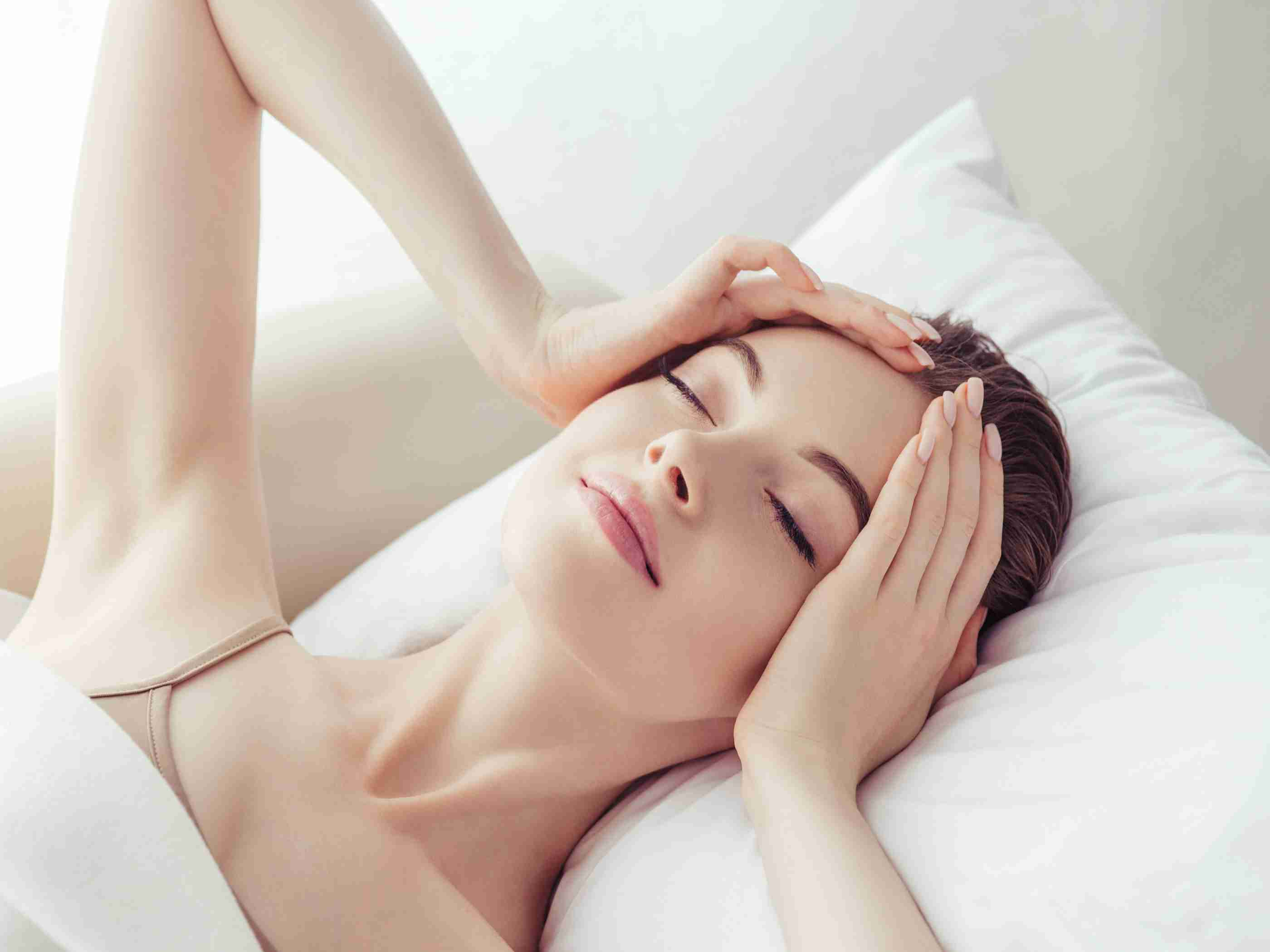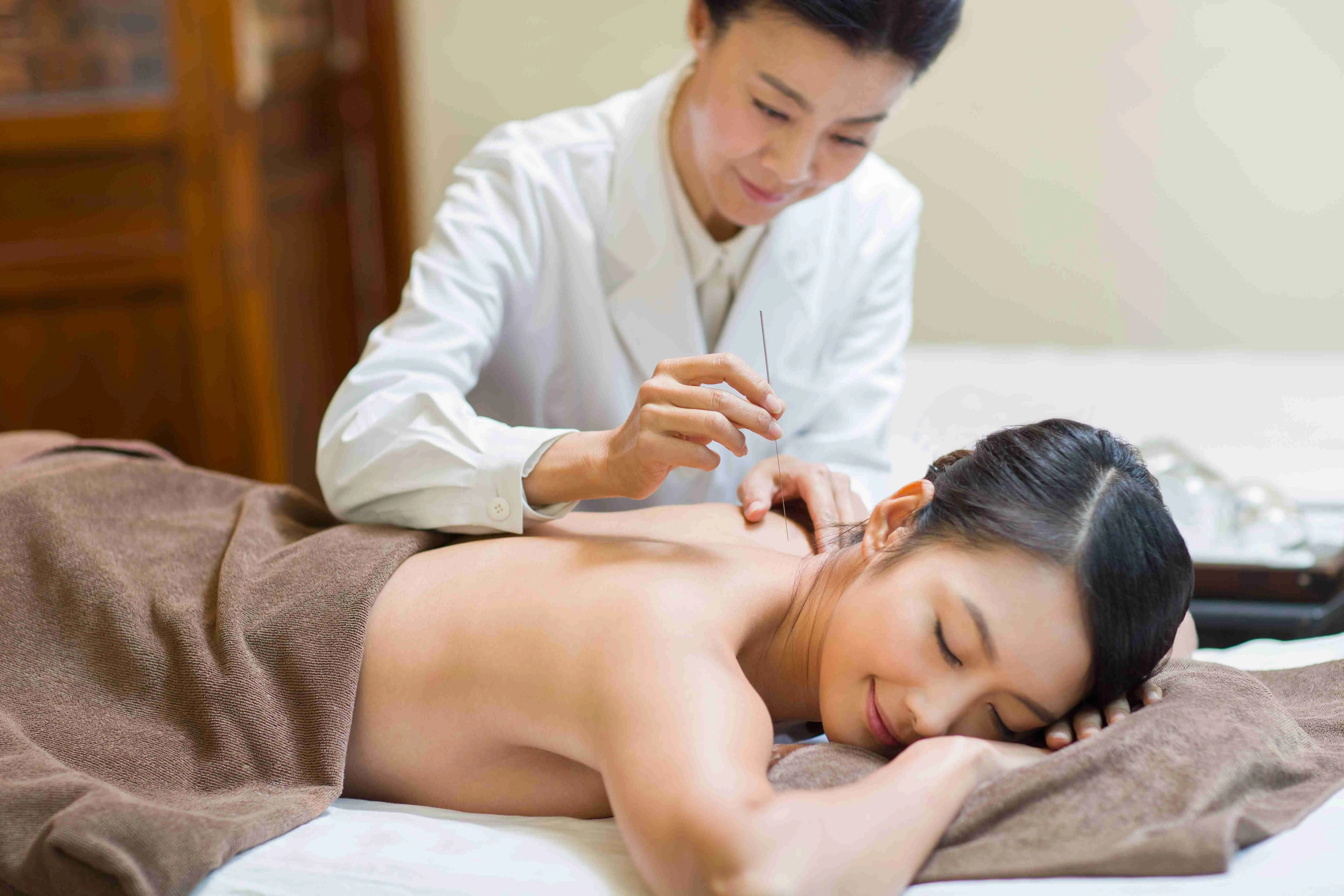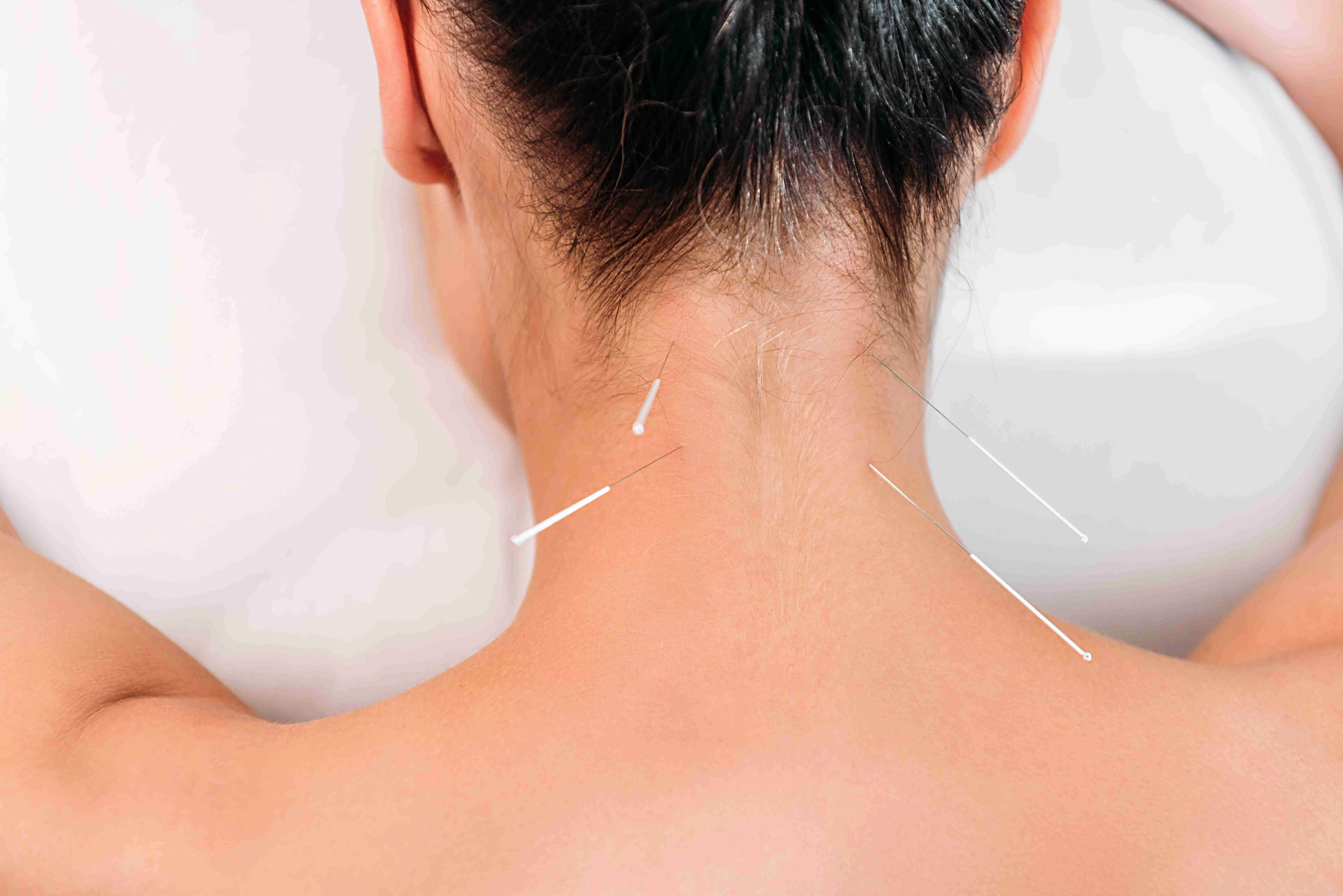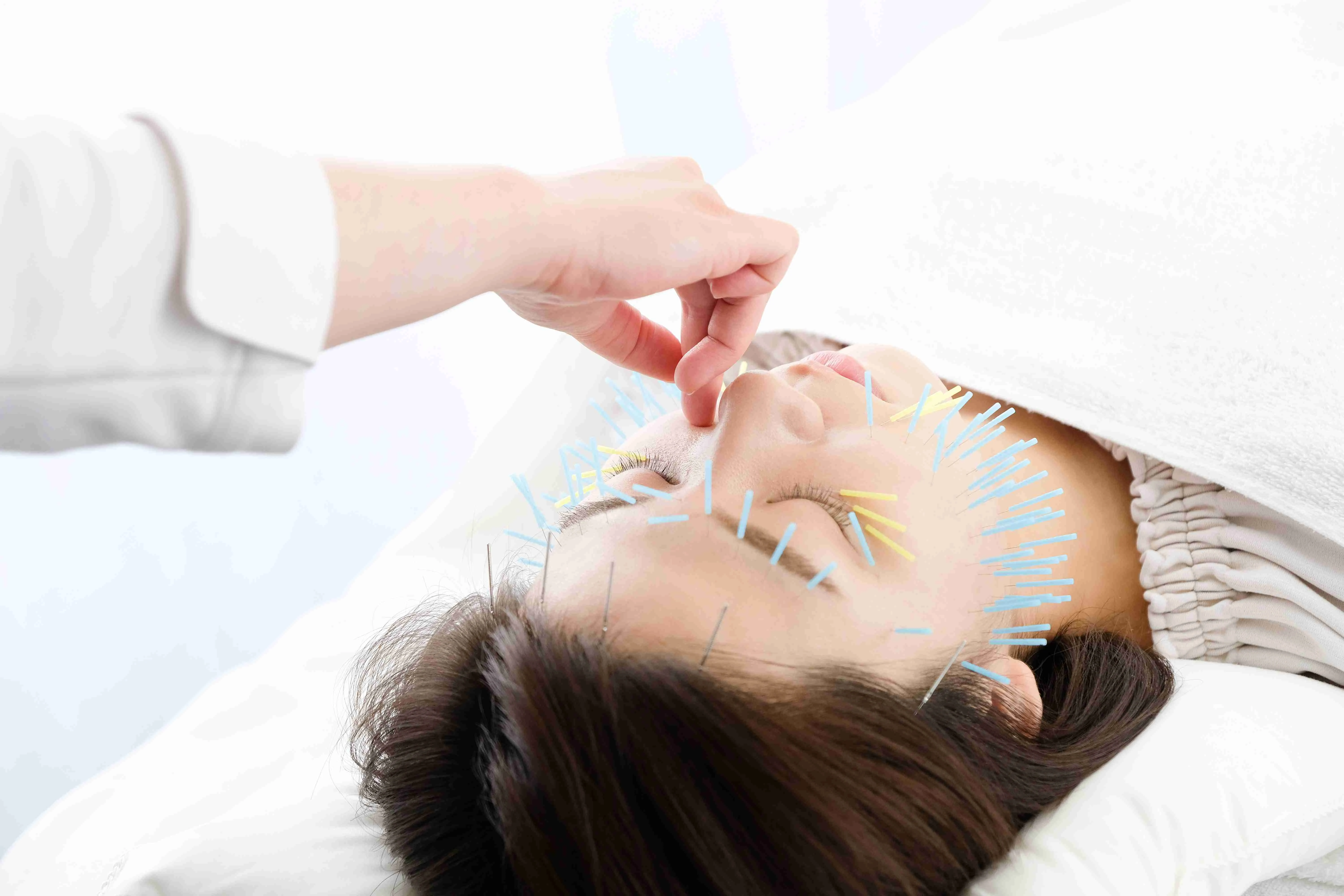Struggling with insomnia can leave you feeling drained, frustrated, and desperate for relief. While many people turn to sleep medications or over-the-counter remedies, acupuncture offers a natural, holistic alternative that addresses the root causes of sleep disturbances.
This article delves into the science behind acupuncture, its benefits, and the potential side effects.
Understanding Insomnia and Its Impact on Health
Insomnia is characterized by persistent difficulties falling asleep, staying asleep, or experiencing non-restorative sleep. This sleep disorder can have far-reaching consequences for your physical and mental health.
Treating insomnia is crucial for maintaining overall health and well-being, as quality sleep plays a vital role in various physiological processes, including tissue repair, hormone regulation, and cognitive function.
What Is Acupuncture?

Acupuncture is a holistic healing practice that involves the insertion of fine needles into specific points on the body, known as acupoints. According to traditional Chinese medicine (TCM), these acupoints are connected by meridians, which are pathways through which vital energy flows.
The goal of acupuncture is to restore the balanced flow of Qi, which is believed to be disrupted in various health conditions, including insomnia. By stimulating specific acupoints, acupuncturists aim to regulate the body's natural healing mechanisms and promote a state of equilibrium, leading to improved sleep quality and overall well-being.
The Science Behind Acupuncture for Insomnia
The mechanisms behind acupuncture's effectiveness in treating insomnia are not fully understood from a Western scientific perspective. Here are some of the proposed mechanisms:
- Regulation of Neurotransmitters: Acupuncture may influence the production and release of neurotransmitters, such as serotonin, melatonin, and gamma-aminobutyric acid (GABA), which play crucial roles in regulating sleep-wake cycles and promoting relaxation.
- Modulation of the Autonomic Nervous System: Acupuncture may help balance the activity of the sympathetic and parasympathetic nervous systems, reducing stress and promoting a state of relaxation conducive to better sleep.
- Reduction of Inflammation: Chronic inflammation has been linked to sleep disturbances. Acupuncture may help reduce inflammation by influencing the release of anti-inflammatory compounds and modulating the immune system.
- Placebo Effect: The placebo effect involves the mind's ability to influence physiological processes through belief and expectation and may play a role in acupuncture's effectiveness for insomnia.
Acupuncture Benefits

Acupuncture has been shown to provide numerous benefits for individuals struggling with insomnia, including:
Improved Sleep Quality and Duration
Acupuncture has been shown to significantly enhance the quality of sleep, helping individuals fall into deeper, more restorative sleep.
By stimulating specific points in the body, acupuncture can encourage relaxation, increase melatonin production, and improve the natural sleep cycle. This often leads to better overall sleep duration and a more restful night’s sleep.
Reduced Sleep Onset Time
One of the most common challenges for people with insomnia is difficulty falling asleep. Acupuncture can help reduce the time it takes to fall asleep by calming the nervous system, relaxing the mind, and promoting the body’s natural circadian rhythms.
This is achieved through targeted stimulation of acupuncture points that help relax the body and mind, making it easier to drift into sleep.
Natural Regulation of Sleep-Wake Cycles
Acupuncture can help regulate the body’s internal clock, or circadian rhythm, which is essential for healthy sleep patterns. By balancing the flow of energy (Qi) in the body, acupuncture helps support natural sleep-wake cycles.
People whose sleep patterns are erratic due to shift work, jet lag, or other irregular sleep schedules may find this to be especially helpful.
Improved Physical Relaxation and Pain Relief
Physical discomfort or pain can often be a barrier to restful sleep. Acupuncture is effective in promoting physical relaxation and reducing pain, whether from chronic conditions, muscle tension, or stress.
Reduced Reliance on Sleep Medications
Acupuncture provides a natural alternative for individuals who want to reduce or eliminate their reliance on sleep medications.
While sleep medications can offer temporary relief, they often come with side effects and do not address the underlying causes of insomnia. Acupuncture can help break the cycle of dependency on pharmaceutical drugs, offering a more holistic and sustainable solution for improving sleep.
Improved Mood and Well-Being
Acupuncture is known to support mental and emotional well-being, which is important for addressing insomnia that stems from anxiety, stress, or depression.
By stimulating the release of endorphins and balancing neurotransmitters like serotonin and dopamine, acupuncture can help alleviate the mental health issues that often contribute to sleep disturbances.
Holistic Approach
One of the most compelling aspects of acupuncture is its holistic approach to health. Unlike conventional sleep medications that typically address only the symptom of insomnia (trouble sleeping), acupuncture works to restore balance to the body as a whole.
It targets the root causes of insomnia, such as stress, pain, digestive issues, or hormonal imbalances, by promoting the free flow of energy throughout the body.
Minimal Side Effects
Acupuncture is considered a low-risk treatment with minimal side effects when performed by a qualified practitioner. The most common side effects are mild and temporary, such as minor bruising, soreness, or fatigue.
Unlike prescription sleep medications, which often carry a risk of addiction, drowsiness, or other adverse effects, acupuncture is a non-invasive and drug-free therapy that avoids these risks.
What to Expect During an Acupuncture Session
If you're considering acupuncture for insomnia, it's essential to understand what to expect during a typical session. Here's a general overview of the process:
Initial Consultation
The first session typically begins with a comprehensive consultation, where the acupuncturist will ask about your sleep patterns, medical history, lifestyle, and any other factors that may be contributing to your insomnia.
This may include questions about the duration and frequency of your sleep problems, any underlying conditions (e.g., anxiety, pain, or stress), or your diet, exercise habits, and general well-being.
Acupuncture Treatment
After the consultation, the acupuncturist will begin the acupuncture treatment. This typically involves:
Needle Insertion: The acupuncturist will insert very thin, sterile needles into specific acupuncture points on your body. For insomnia, common areas might include points on the hands, feet, head, and along the legs. The needles are very fine (much thinner than those used for injections) and should cause minimal discomfort.
Needle Placement: The needles may be left in place for about 20 to 40 minutes, depending on the treatment plan. Some individuals feel a mild sensation (like a dull ache or tingling) as the needles are inserted, while others may not feel anything at all.
Additional Techniques: Depending on the practitioner's style and your treatment needs, the acupuncturist may also use additional techniques such as:
- Moxibustion: The application of heat to certain acupuncture points using a burning herb (moxa) to promote relaxation.
- Electroacupuncture: This involves attaching small electrodes to the acupuncture needles to deliver a gentle electrical current, which may enhance the effectiveness of the treatment.
Relaxation
Once the needles are in place, you will typically be asked to lie back and relax. Many people feel deeply relaxed during this part of the session, and it’s common to feel a sense of calm or even drowsiness. Some individuals even fall asleep during the treatment, which can be particularly beneficial for those with insomnia.
During the session, the acupuncturist may leave the room for a while to allow you time to rest. The peaceful, quiet atmosphere is designed to help you unwind and shift into a state of deep relaxation, which can have a positive impact on your sleep patterns.
Follow-up
After the acupuncture session, you may feel deeply relaxed or slightly energized. The acupuncturist will typically give you some recommendations for improving sleep hygiene and may suggest lifestyle changes or relaxation techniques that complement the acupuncture treatments.
- Follow-up Sessions: Acupuncture for insomnia often requires multiple sessions. While some people may experience improvement after just one session, a series of treatments is generally recommended for more lasting effects. Sessions may be scheduled once or twice a week initially, and then spaced out as you begin to experience better sleep.
- Treatment Plan: The acupuncturist will track your progress and adjust your treatment plan as needed. If acupuncture proves effective, many patients gradually reduce the frequency of sessions over time.
- Results: While some people feel immediate improvements in sleep quality, it can take a few sessions to notice significant changes. It's important to be patient and give the body time to respond.
Acupuncture Points Commonly Used for Insomnia
Acupuncturists may target various acupoints to address insomnia, depending on the underlying causes and individual presentation. Here are some commonly used acupuncture points for treating insomnia:
- Anmian (EX-HN 22): Located on the back of the head, this point is believed to calm the mind and promote sleep.
- Shenmen (HT 7): Located on the wrist, this point is thought to have a calming effect on the mind and emotions.
- Neiguan (PC 6): Also located on the wrist, this point is used to reduce anxiety and promote relaxation.
- Yintang (EX-HN 3): Known as the "third eye point," this acupoint is located between the eyebrows and is believed to calm the mind and alleviate stress.
- Baihui (GV 20): Located at the top of the head, this point is used to promote overall relaxation and improve sleep quality.
Combining Acupuncture Therapy with Other Sleep Therapies
While acupuncture can be an effective standalone treatment for insomnia, it may also be combined with other complementary therapies to enhance its benefits. Some potential combinations include:
Herbal Remedies
Herbal remedies have long been used in traditional medicine to support sleep and relaxation. When paired with acupuncture, they can help address underlying imbalances that contribute to insomnia. Some commonly used herbs include:
- Valerian Root: Known for its calming and sedative effects, it can help reduce the time it takes to fall asleep.
- Chamomile: Often consumed as a tea, chamomile can soothe the nervous system and promote relaxation.
- Lavender: Lavender is widely recognized for its ability to reduce anxiety and improve sleep quality, whether used in essential oil form, as a tea, or in a bath.
- Passionflower: This herb may help reduce anxiety and improve sleep quality, especially for people experiencing stress-induced insomnia.
Cognitive-Behavioral Therapy for Insomnia (CBT-I)
Cognitive-behavioral therapy for insomnia (CBT-I) is a structured, evidence-based therapy that focuses on changing the thoughts and behaviors contributing to sleep problems. CBT-I may include:
- Sleep Restriction: Limiting the time spent in bed to increase sleep drive.
- Cognitive Restructuring: Addressing negative thoughts about sleep and replacing them with more realistic beliefs.
- Stimulus Control: Reassociating the bed with sleep rather than anxiety or wakefulness.
Relaxation Techniques
Incorporating relaxation techniques into your routine can enhance the calming effects of acupuncture. These may include:
- Deep Breathing: Techniques like diaphragmatic breathing or the 4-7-8 method can help activate the parasympathetic nervous system, promoting relaxation before sleep.
- Progressive Muscle Relaxation (PMR): This involves systematically tensing and relaxing different muscle groups in the body, which can relieve physical tension and promote a sense of calm.
- Meditation and Mindfulness: Guided meditation or mindfulness practices can help reduce mental chatter and calm the nervous system, making it easier to fall asleep.
Lifestyle Modifications
Certain lifestyle changes can complement acupuncture treatments and improve sleep quality over time:
- Consistent Sleep Schedule: Going to bed and waking up at the same time each day helps regulate the body's internal clock.
- Limit Caffeine and Alcohol: Reducing the intake of stimulants like caffeine and alcohol, especially in the afternoon and evening, can improve sleep onset. Similarly, while alcohol may initially make you feel sleepy, it can disrupt the later stages of sleep.
- Exercise: Regular physical activity during the day (but not too close to bedtime) can help regulate sleep patterns and reduce insomnia.
- Create a Sleep-Friendly Environment: Make your bedroom a restful place by keeping it cool, dark, and quiet. Consider using earplugs or a white noise machine if noise is an issue.
Potential Side Effects of Acupuncture

Acupuncture for sleep and anxiety is generally considered a safe and well-tolerated treatment when performed by a qualified practitioner. However, like any medical intervention, there are potential side effects and precautions to be aware of:
Potential Side Effects
- Minor Bleeding or Bruising: It’s not uncommon to experience slight bleeding or bruising at the needle insertion sites. These are usually minor and resolve on their own.
- Soreness or Muscle Ache: Similar to the sensation you might feel after physical therapy, some people experience soreness or aching around the treated area, which usually subsides within a day or two.
- Fatigue: Many individuals feel relaxed or fatigued after a session. This can be a temporary effect as the body adjusts to the treatment.
- Dizziness or Lightheadedness: A small percentage of patients may feel dizzy or lightheaded during or after the session. It’s typically short-lived but should be discussed with your practitioner if it occurs.
- Temporary Emotional Release: Some people may experience an emotional release during or after acupuncture, such as unexpected tears or feelings of sadness. This can be part of the healing process, as acupuncture is believed to release stored emotions in the body.
- Infection Risk: If sterile needles aren't used, or if the procedure isn’t performed in a clean environment, there is a potential risk of infection. It's important to ensure that the practitioner follows proper sanitation procedures.
Precautions
- Use a Licensed and Certified Practitioner: To minimize the risk of complications, it’s essential to seek acupuncture treatment from a licensed and certified practitioner who adheres to professional standards.
- Inform the Practitioner of Health Conditions: Be sure to inform your practitioner about any existing medical conditions (such as heart disease, diabetes, or allergies) or if you’re on any medications, especially blood thinners.
- Avoid Acupuncture During Pregnancy in Certain Areas: Acupuncture is generally safe during pregnancy, but certain points should be avoided, as they could potentially induce contractions. Always inform your practitioner if you are pregnant.
- Be Cautious if You Have a History of Seizures: If you have a history of seizures, it's crucial to let your practitioner know so they can tailor the treatment to ensure your safety.
- Avoid Large Meals or Alcohol Before Treatment: It’s advisable to avoid eating a heavy meal or drinking alcohol immediately before an acupuncture session, as this can affect your body’s response to the treatment.
- Monitor for Allergic Reactions to Acupuncture Materials: Though rare, some individuals may have an allergic reaction to the materials used, such as the metal in needles. If you notice any unusual symptoms (such as itching, rash, or swelling), notify your practitioner immediately.
- Prepare for Possible Mild Bruising if on Blood Thinners: If you are taking blood-thinning medications, there may be an increased likelihood of bruising at the needle sites. This is generally not a serious issue but should be communicated to your practitioner before the session.
FAQs
How long does it take to see results from acupuncture for insomnia?
The time it takes to see improvements in sleep quality can vary from person to person. Some individuals may experience positive changes after just a few sessions, while others may require a longer course of treatment.
Is acupuncture painful?
Acupuncture is generally not considered a painful procedure. While you may experience a brief, mild sensation when the needles are inserted, most individuals report feeling relaxed and comfortable during the treatment.
How long does an acupuncture session last?
The duration of an acupuncture session can vary but typically ranges from 30 minutes to an hour. The initial consultation may take longer as the acupuncturist gathers information about your medical history and sleep concerns.
Can acupuncture be combined with sleep medications?
In some cases, acupuncture may be used in conjunction with sleep medications, but it's essential to consult with your healthcare provider and acupuncturist to ensure safe coordination of these treatments.
How many acupuncture sessions are typically needed for insomnia?
The number of sessions required can vary depending on the severity and underlying causes of your insomnia. Some individuals may experience improvements after just a few sessions, while others may require a longer course of treatment.
Conclusion
Acupuncture presents a promising solution for those seeking relief from insomnia without the reliance on prescription medications.
By targeting the underlying imbalances in the body, acupuncture not only promotes better sleep quality and duration but also supports overall physical and mental well-being.
Jessica H.
Jessica is a reviewer, writer, and sleep enthusiast at Sleepiverse. Jessica graduated with her master's degree in Nursing research and education. She is a registered nurse and currently works in the Intensive Care Unit. Since becoming a nurse, Jessica has worked the night shift, which means a disrupted sleep schedule. Knowing she needed to function at her best while caring for patients at night, she spent a lot of time researching how to sleep well with a difficult schedule.


